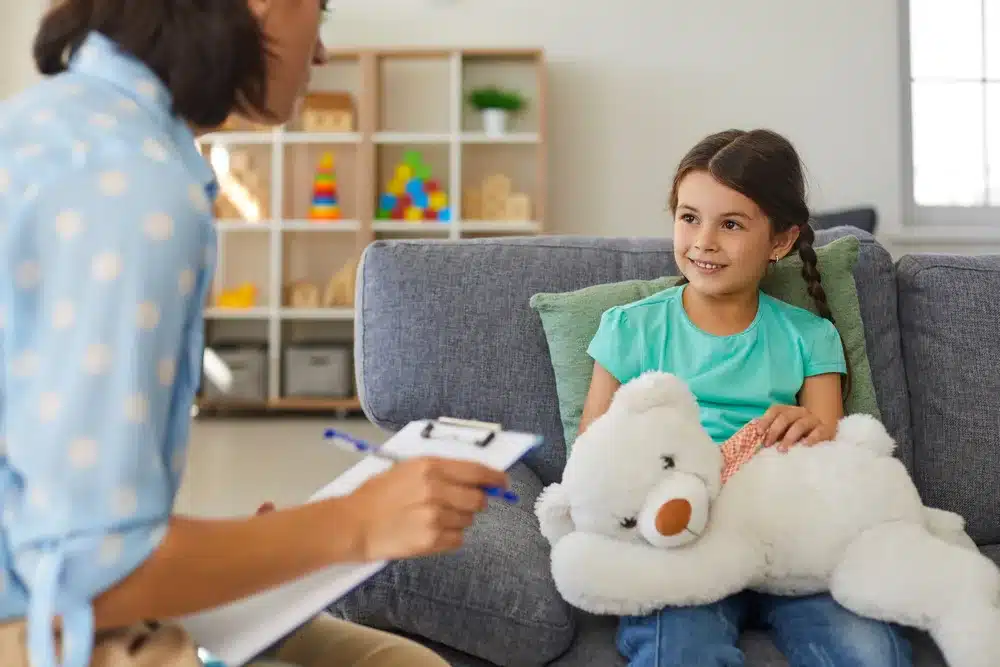Anyone who works with or is involved with children requires an understanding of Child Psychology
This child psychology course is recommended for: Parents; Child Care Workers; Teachers and people who work in child services; Toy manufacturers, play leaders, or anyone else with an interest in how children behave.
Learn how children develop psychologically as they grow, and what factors (such as learning, parenting styles, reinforcement, and genetic makeup) influence their behaviour and thinking. Anyone who lives or works with children will gain valuable insights into child behaviour. Students of counselling or psychology will be better prepared to understand childhood influences on later adult behaviour.
Course Aims:
- Identify environmental and social aspects required for the ideal environment for a developing child.
- Explain how genetic and environmental factors operate together in influencing the child’s personality development.
- Provide evidence that a particular personality characteristic may be genetically determined.
- Explain how genetic and environmental factors operate together in influencing the child’s personality development.
- Identify the type of learning in which a stimulus which usually produces an unconditioned response is manipulated to produce a conditioned response, and give an example.
- Discuss exactly how you would use operant conditioning to encourage a child to socialise.
- Apply the perceptual recognition approach to explain smiling and fear in infants.
- Evaluate Freud’s, Harlow’s and Bowlby’s explanations of the formation of mother-child attachments different.
- Explain reflection-impulsivity and its significance in cognitive development.
- Explain the strengths and weakness of social learning theory in explaining language acquisition.
- Explain why you think that intelligence is or is not overall genetically determined.
Detailed Course Outline
This course is made up a number of lessons or units. Each having self assessment questions, set tasks (practical homework), and an assignment which you can upload online.
There are 12 Lessons in this course:
1. Introduction to Child Psychology
-
- Levels of development.
- Nature or nurture.
- Isolating hereditary characteristics.
- Cause versus correlation.
- Continuity versus discontinuity.
- Cross sectional and longitudinal studies.
- Reliability of verbal reports.
2. The Newborn Infant
-
- The Interactionist Approach.
- Range of Reaction.
- Niche Picking.
- Temperament Stimulus seeking.
- Emotional Disturbances During Pregnancy.
3. States and Senses of the Infant
-
- Sensory Discrimination.
- Infant States (sleep, inactivity, waking, crying etc.).
- Why are Psychologists so concerned with defining and describing infant states?
- Habituation.
- Crying.
- Soothing a Distressed Baby.
- Sound Discrimination.
- Smell and Taste Discrimination.
- Visual Discrimination.
- Depth Perception.
- Oral Sensitivity.
4. Learning
-
- Habituation.
- Vicarious Learning.
- Classical Conditioning.
- Operant Conditioning.
- Reinforcement.
- The Importance of Learning Control, etc.
5. Emotions and Socialization
-
- Producing and Recognising Emotional Expression.
- Smiling, Biological Explanation.
- Perceptual Recognition Explanation.
- The Mother-Child Attachment.
- Freudian Approach Bowlby’s Approach.
- Social Learning Approach.
- Harlow’s Approach.
- The Role of Cognition in Attachment Formation.
- Maternal Attachment.
- Fear, Social Learning.
- Perceptual Recognition.
- Women’s Dual Role as Mothers and Workers, day care
6. Cognitive Development
-
- Developing the Ability to Reason
7. Language Development
-
- Is language learned, or are we genetically programmed with it?
- The Social Learning Approach.
- The Hypothesis Testing Approach.
- Under Extending
8. Intelligence
-
- Measuring Intelligence.
- Cultural Bias.
- IQ.
- Testing Intelligence as a tool.
9. Socialisation Part 1
-
- Social Cognition – self awareness, awareness of others as individuals in their own right, the development of empathy, taking turns, having a point of view/perspective, ability to see something from another person’s perspective.
- Friendships.
- Social Scripts, Scripts that Pretend Play.
10. Morality
-
- Moral development.
- Aggression & Altruism.
- Freud’s Approach.
- Piaget’s Approach.
- Kohlberg’s Approach
11. Sexuality
-
- Freud’s phases (oral phase, anal phase, phallic phase, latent phase, genital phase).
- The Acquisition of Gender and Role Identity.
- Concept of Psycho-Social Development.
12. Socialisation Part 2
-
- The Family Influence.
- Discipline.
- Siblings.
- Family Structures.
- School Influence.
- Peer Influence.
- Acceptance and Rejection.
- Imitation and Reinforcement
When you have completed the lessons of your Child Psychology Certificate course, you will be given the option of taking the optional exam. It’s okay if you don’t want the exam, we still issue your Careerline Certificate. For Advanced Certificates however, the exam is compulsory (per module) and are included in the course fee.

